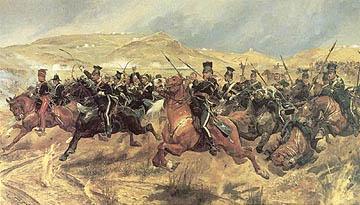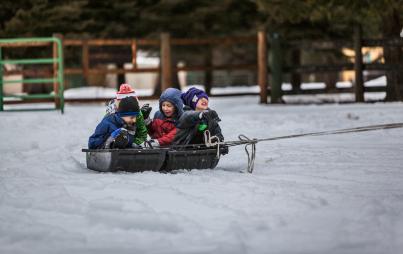
Crimea is all the rage right now. The last time this Black Sea peninsula dominated world headlines? 160 years ago, during the Crimean War of 1853-1856. This conflict featured Russia vs. the British Empire, France, and Ottoman Empire and Sardinia, and ended in Russian defeat. And while European fighting was a constant mainstay pretty much since the beginning of time through WWII, the Crimean war had unique cultural and technological impacts on Britain, and then the larger world.
A sampling of Crimean influence:
Fashion: Balaclavas—cloth face masks—were reportedly first used in the Crimean war. These knitted cloths were sent to the British troops to protect their faces from the bitter cold at a battle near the Crimean town of Balaklava. Inhabitants of snowy climates (and criminals) have enjoyed them ever since.
Journalism: The recently-invented telegraph altered the nature of war reporting in Crimea. Suddenly news from far-flung battlefields could reach London quickly, enabling some of the first “live” war reporting. The press could more readily obtain information, which led to more scrutiny on war conditions, including poor treatment of wounded soldiers. (According to NPR, “Getting shot was in some ways worse than getting killed outright, as the wounded were often left lying in filth and agony where they had fallen or exposed to gruesome treatment in what then passed for military hospitals.”)
Military Technology: Among battlefield advances tested in the war were the use of railroads (or “Iron horse” if you’re a traditionalist) to transport large quantities of troops and supplies, and the replacement of round bullets with cone-shaped Minie-balls, which provided greater range and accuracy (this development was also a major factor in the massive death tolls a decade later in Civil War battles like Antietam and Gettysburg).
And if you’re interested in a more licentious angle, you can check out the popular historical fiction book, Flashman at the Charge, which chronicles “a cowardly, vain and exceedingly horny British officer who cowers, drinks, and . . . fornicates his way through” the Crimean War. (Image: commons.wikimedia.org)






